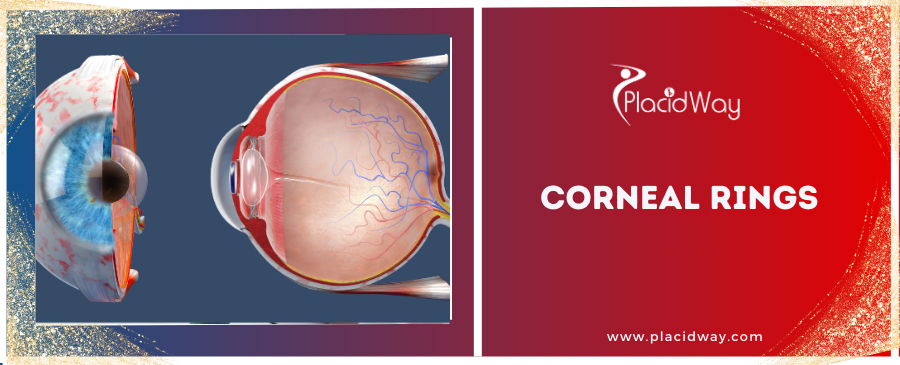
Table of Content
Corneal rings, also known as intrastromal corneal ring segments (ICRS) or Intacs, are small, crescent-shaped implants inserted into the cornea to reshape it and improve vision. Corneal rings are commonly used to treat keratoconus, a condition in which the cornea becomes progressively thinner and more cone-shaped, leading to distorted vision. By flattening the cornea, corneal rings help improve visual acuity, reduce dependence on glasses or contact lenses, and delay the need for a cornea transplant. The procedure is minimally invasive and can provide significant improvements for patients with mild to moderate keratoconus.
| Technique | Description |
|---|---|
| Standard Intacs | Implants made of PMMA inserted into the cornea to flatten and reshape it, improving visual acuity. |
| Ferrara Rings | Special type of corneal ring segment designed for better centration and correction of astigmatism. |
| Customized ICRS | Personalized corneal rings designed to match the patient's specific corneal shape and condition for optimal results. |
For different packages for Corneal Rings, Click here.
| Step | Description |
|---|---|
| Consultation | Initial consultation with an ophthalmologist to assess the condition of the cornea and determine the suitability of corneal rings. |
| Preparation | The cornea is numbed using local anesthesia, and a small incision is made to create a channel for the rings. |
| Insertion | The corneal rings are carefully inserted into the channel to reshape the cornea. |
| Post-Procedure Care | Instructions are provided for aftercare, including using prescribed eye drops and attending follow-up appointments to monitor the implants. |
| Country | Average Cost (USD) |
|---|---|
| Mexico | $2,500 - $4,000 |
| Turkey | $3,000 - $5,000 |
| Thailand | $2,800 - $4,500 |
| Colombia | $2,500 - $4,200 |
| India | $2,000 - $3,500 |
| Austria | $4,500 - $6,500 |
| USA | $5,000 - $7,500 |
| UK | $4,000 - $6,000 |
Find Prices for Corneal Rings Treatment Near You here.
The cost of corneal rings without insurance ranges from $2,000 in India to $7,500 in the USA. The price may vary based on the severity of the condition, the technique used, and the clinic's location.
Most patients recover within a few days to a week. However, it may take a few months for vision to stabilize and for the full benefits of the corneal rings to be realized.
The procedure is performed under local anesthesia, making it virtually painless. Some discomfort or irritation may be experienced during the healing phase, but this can be managed with prescribed medications.
Yes, corneal rings can be removed or replaced if necessary. If the rings are removed, the cornea will generally return to its original shape, although the condition may progress as it did before the procedure.
Yes, alternatives include corneal cross-linking for early keratoconus or customized contact lenses to manage vision. Consult with an ophthalmologist to determine the most suitable option based on your condition.
Are you considering corneal rings to improve your vision and manage keratoconus? PlacidWay can help you connect with leading eye clinics worldwide that offer affordable and high-quality corneal ring procedures. Let us assist you in finding the best clinic and guide you through the process to ensure the best outcome. Start your journey towards better vision today by reaching out to our expert team!
Laser Eye Surgery, LASIK Eye Surgery Abroad